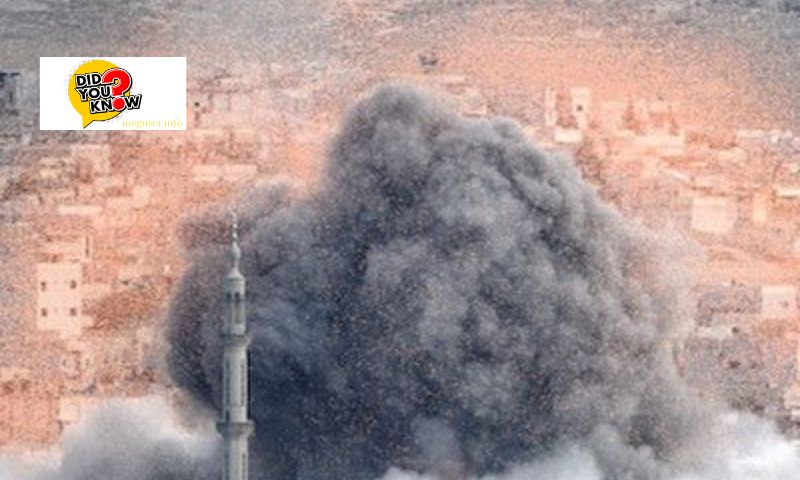Civilization, a complex amalgamation of societal, cultural, economic, and political factors, marks the pinnacle of human development. However, not all nations have reached the same level of civilization. Some countries face significant challenges that hinder their progress towards becoming fully developed societies. This article from Megusta.info explores the concept of the least civilized country in the world examining the factors contributing to such a designation and the implications it holds globally.
Factors Contributing to Lack of Civilization

To understand why certain countries are considered the least civilized, we must delve into various contributing factors:
Socio-economic Indicators
Socio-economic indicators such as poverty rates, income inequality, and access to basic services play a crucial role in determining a country’s level of civilization. Countries with high poverty rates often struggle to provide essential infrastructure and services to their citizens, leading to a cycle of underdevelopment. Lack of access to education and healthcare perpetuates poverty, further widening the gap between the rich and the poor.
For instance, in Sub-Saharan Africa, several nations exhibit low Human Development Index (HDI) scores due to widespread poverty and inadequate social services. Countries like Niger and Chad consistently rank among the least developed globally, facing challenges in education, healthcare, and basic infrastructure development.
Political Instability and Governance Issues
Political instability and poor governance contribute significantly to a country’s lack of civilization. Corruption, weak institutions, and political unrest create barriers to economic growth and social development. Countries plagued by conflict or authoritarian regimes often prioritize military expenditures over social welfare, exacerbating societal divisions and hindering progress toward civilization.
In countries like Afghanistan and Somalia, ongoing conflict and political instability have hindered efforts to establish stable governance structures and develop essential public services. These nations struggle with governance issues, impacting their ability to foster economic growth and provide for their populations’ basic needs.
Cultural and Societal Norms
Cultural and societal norms can also influence a country’s level of civilization. Traditional beliefs and practices may hinder social progress, particularly concerning gender equality, human rights, and access to education. Patriarchal societies, for example, may limit women’s opportunities for education and employment, perpetuating cycles of poverty and inequality.
In countries like Yemen and parts of rural India, traditional norms and customs restrict women’s rights and economic opportunities, contributing to disparities in education and healthcare access. Addressing cultural barriers is crucial for promoting inclusive development and advancing societal progress.
Environmental Challenges
Environmental challenges such as climate change, natural disasters, and resource scarcity pose significant obstacles to development. Countries vulnerable to environmental degradation may struggle to maintain agricultural productivity, access clean water, and mitigate the impact of natural disasters. These challenges can exacerbate poverty and instability, undermining efforts to achieve sustainable development.
In regions like the Pacific Islands and parts of Central America, vulnerable countries face escalating climate-related risks, including rising sea levels and extreme weather events. Adaptation strategies and international cooperation are essential for addressing environmental challenges and promoting resilient development.
Case Studies of Countries Considered Least Civilized

Examining specific case studies provides insights into the unique circumstances contributing to a country’s designation as the least civilized:
Democratic Republic of Congo (DRC)
The DRC, located in Central Africa, faces persistent challenges related to political instability, armed conflict, and weak governance. Decades of conflict have devastated the country’s infrastructure and displaced millions of people, hindering efforts to achieve sustainable development. Despite its abundant natural resources, including minerals like cobalt and coltan, the DRC struggles to harness these assets for economic growth and poverty reduction.
Haiti
Haiti, the poorest country in the Western Hemisphere, grapples with socio-economic challenges exacerbated by natural disasters and political instability. The 2010 earthquake and subsequent hurricanes severely damaged Haiti’s infrastructure and displaced thousands of people, exacerbating poverty and food insecurity. Limited access to education and healthcare further impedes Haiti’s development efforts, highlighting the interconnected nature of socio-economic and environmental challenges.
Implications of Being the Least Civilized

The designation of a country as the least civilized carries profound implications for global perceptions, diplomatic relations, and humanitarian efforts:
Global Perceptions and Diplomatic Relations
Perceptions of a country’s level of civilization can influence international diplomacy, trade relations, and foreign aid allocations. Countries facing significant development challenges may struggle to attract investment and establish partnerships with other nations, impacting their economic prospects and geopolitical influence. Addressing development disparities is essential for promoting inclusive growth and fostering international cooperation.
Economic Consequences and Barriers to Development
The socio-economic impact of being the least civilized can perpetuate cycles of poverty and hinder economic growth. Limited access to education, healthcare, and infrastructure constrains productivity and innovation, hindering efforts to improve living standards and reduce inequality. Economic development strategies must prioritize inclusive growth and address structural barriers to ensure sustainable progress.
Humanitarian Concerns and International Aid Efforts
Humanitarian organizations play a crucial role in providing emergency assistance and long-term development support to countries facing significant challenges. Humanitarian crises, including conflict, natural disasters, and food insecurity, require coordinated international efforts to deliver aid and promote stability. Investing in humanitarian assistance and development programs is essential for addressing the root causes of poverty and fostering resilience in vulnerable communities.
Conclusion
In conclusion, the concept of the least civilized country in the world underscores the complex interplay of socio-economic, political, cultural, and environmental factors shaping global development. By understanding the challenges faced by these nations, we can work towards promoting inclusive growth, advancing human rights, and achieving sustainable development goals. International cooperation and solidarity are crucial for addressing development disparities and building resilient societies capable of overcoming obstacles to progress.

